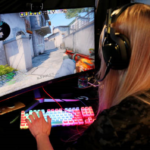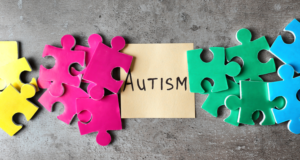A Guide To Overcoming CSGO Addiction
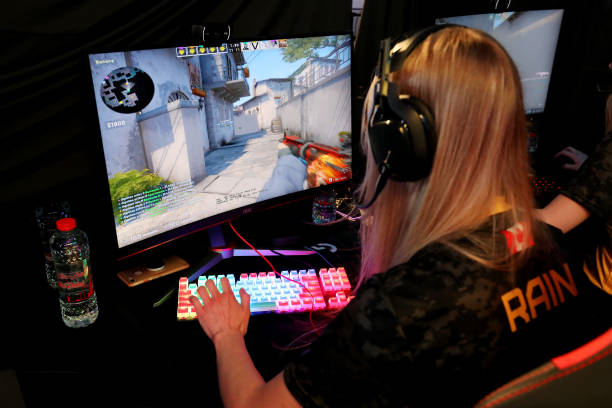
Counterstrike has a long history as a multiplayer, first-person shooter for the PC. With the first instalment of the game being officially released in 2000 by valve. Since then the game has come leaps and bounds to produce Counterstrike: Global Offensive (CSGO) one of the most played and arguably most addictive, competitive first-person shooters out there. The game has led to horror stories of peoples lives being destroyed due to addiction, so we are going to walk through how to overcome CSGO addiction and prevent gamers from becoming another viral addiction story.
Content
CSGO’s Addictive Qualities
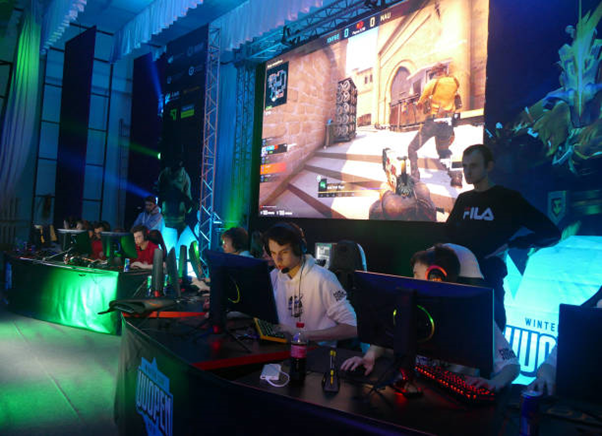
It’s important to note that while some people might have more of a disposition to developing video game addiction than others. Games such as CSGO do possess very addictive qualities which we should be aware of.
Competition
First and foremost CSGO is an extremely competitive game. Not just due to the attitude of the players but the nature of how the game is set up. Two teams commit to investing up to 90 minutes of their time, battling round after round, adjusting to plays and strategizing to be the first to 16. It’s safe to say that this playstyle requires, or at the very least encourages, a will to win. Gamers who love the thrill of competition are drawn to this game which puts them at risk of addiction by spending countless hours trying to win competitive matches to rank up.
The success of this game in the Esports scene cements the game as a great competitive platform. Tournament winnings for CSGO in 2020 were an estimated 15.8 million dollars one of the highest cumulative prize pools that year.
Ultimately the games ability to provide an easily accessible, safe form of competition is what hooks many players into investing the long hours to develop video game addiction.
High Stimulation
The intense pressure that this game can put a player under is quite astounding. Losing all of your teammates in a failed attempt to take the bombsite, leaving you in a 1v5 situation to clutch out the round really gets your adrenaline going. This high level of stimulation the game can provide each and every round is an adrenaline junkies dream. Hence players that live for these thrills find the game so addictive.
Being able to access this kind of stimulation from their gaming chair without having to go outside and take real risks makes the game so appealing to the more shy and reclusive gamers.
The repetitive exposure to this sort of stimulation has a whole host of negative effects on a person such as affecting sleep, concentration and even altering the balance of dopamine in our brain. The excitement the game provides both as a spectator sport and as a high octane activity serves as one of its many addictive qualities.
Measurable Growth
Another aspect of CSGO that most addictive video games share in common is the ability to see measurable growth when playing. Be it through improving your skills in-game to beat your opponent or levelling up to unlock items, video games find a way to set very tempting and achievable goals.
What CSGO does really well lies within its ranked system. Most players who invest their time into competitive matches have the desire to climb the ranks as high as they can to reach the infamous Global Elite rank, if they are good enough that is. The status and pride that comes along with being at these ranks motivates many players to invest time, practising their aim and learning “nade spots” to one day reach this level.
It’s walking this fine line between an achievable goal and a challenging task that makes players prioritise becoming better at the game, rather than achieving something in the real world. Sometimes this can exacerbate depressive symptoms as people who are in a difficult place play video games to feel a sense of accomplishment. However, by investing their time into a video game and having nothing to show for it when not playing, they begin to feel hopeless again and resort to playing video games in a vicious cycle.
At The Mindful Gamer, we work with changing our thoughts to overcome these modes of thinking. So, read on if you’d like to know more about overcoming your addiction.
Relaxation
Although this might sound very contradictory to all of the things that CSGO is addictive for, many players use the game as a way to relax and unwind. Game mechanics such as “bunny hopping” and “surfing” are exploited to create minigames that thousands of gamers find very therapeutic. It’s quite common for individuals who are burnt out from playing ranked for the day to pop on a playlist and aimlessly jump or surf around a player-made map to enter a deep state of focus.
This deep state of focus is what some people use to distract them after a stressful day. This state of high focus has been known to be enjoyed and sought after by people suffering from mental health conditions such as ADHD and Autism. Hence we do recommend consulting a medical professional when possible if dealing with video game addiction.
Moreover, the game is renowned for its deeply satisfying “one taps” which is a term given to hitting a headshot that kills in one bullet. As strange as this might seem this does contribute to the addictive nature of the game. Not only does hitting a one-tap benefit in instantly killing your opponent but it delivers a satisfying audio cue and animation for doing so. This helps to reinforce players to accomplish this more, and the only way to do so is to practice.
Many high-level players spend hours of their day in custom maps practising their aim so that they can hit those satisfying “one taps” as consistently as possible.
Global Impacts of CSGO Addiction
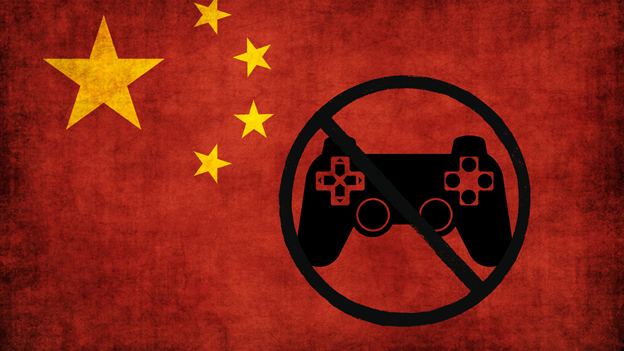
CSGO has had impacts on a global scale, pardon the pun. But the game and addiction to it have become such a pressing issue in China that they have set official limitations to the game to prevent minors from overindulging on the game. As part of their anti-addiction system, CSGO accounts in China are linked to the account holders identity so that players under the age of 18 will not be able to log into the game outside of their allotted hours, legislated by the government.
However, it’s not only in China that video game addiction has begun to make waves as the World Health Organisation (WHO) recognised video game addiction as an official mental health condition in 2018. Based on the data and common symptoms observed around the world it led to video game addiction being incorporated into the DSM-5, a manual used by psychologists in the United States to aid diagnosis of mental health conditions.
With the increase in attention and resources to video game addiction, its treatments and preventions are becoming more efficient and accessible than before.
CSGO Addiction Stories
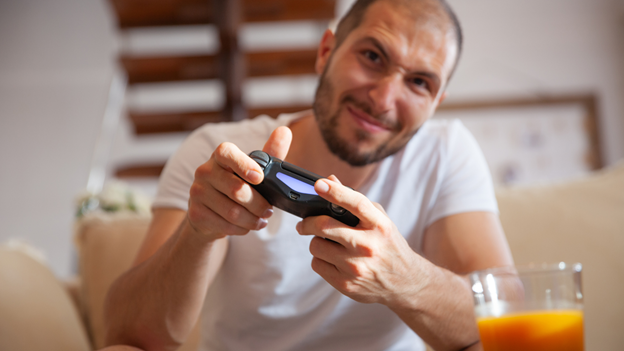
So before we move on to the best ways to beat your CSGO addiction let’s take a look at the life-changing effects it has had on those that let it go untreated. These stories aren’t to scare you but to make you more vigilant in the face of gaming addiction.
Anyone that has taken a trip over to the stop gaming Reddit might have seen that many frequent questions and stories revolve around addiction to CSGO. So, it’s not very surprising that some of the more severe instances end up making news headlines.
A 14-year-old boy Josh had developed an addiction to CSGO and a serious one at that. When left to his own devices he claimed that he could easily play up to 12 hours a day and rack up roughly 60 hours a week worth of game time. His parents finally had enough of his behaviour and took away his PC only for Josh to lash out to the point where his parents reportedly said they were “scared” of him. Josh was placed in an in-person rehabilitation programme where he is making a recovery but the severity of his addiction could have been prevented if actions were taken sooner.
Another instance of CSGO addiction was reported by a sufferer named Ian who stated that CSGO was all he looked forward to in a day. His gaming started as a hobby that slowly consumed his life. He began taking amphetamines on weekends in order to stay awake and play for longer. His addiction had led to him neglecting his family and job ultimately losing them both.
In order to overcome his addiction, he attended one-to-one sessions with a therapist who identified his addiction and began focusing on cognitive behavioural techniques to change his behaviour. Ian is on his way to recovery. But, he explains an important lesson he learned from his therapist about video game addiction; is usually with behavioural addictions such as gambling, the effects are clear early on as the person begins to lose large sums of money. With video game addiction it is much harder to identify it until it begins to have detrimental impacts on a person’s life.
Ian explained that hopefully, the listing of video game addiction in important diagnostic tools will help to educate and make people more aware of the problem
Overcoming CSGO Addiction

Beating a gaming addiction is unlikely going to be an overnight change. However, there are many effective techniques we can use in order to improve addictive behaviour and withdrawal symptoms day by day.
Identifying CSGO Addiction
If you have been unhappy with your relationship with CSGO and feel like you’re investing a little too much time into it then take a moment to consider your behaviour. When diagnosing video game addiction we have to be honest with ourselves so take a look at the common symptoms of video game addiction and see if these are in line with what you’ve been experiencing:
- Falling behind in school or neglecting work to play CSGO
- Noticeable decline in mental health
- Neglecting our physical health and hygiene to play CSGO
- Neglecting relationships with friends, family members and colleagues
It’s important to note that it can be difficult to see these flaws within the midst of our gaming addiction, so seek the input of a close family member or friend. Oftentimes video game addiction is noticed by loved ones before the individual themselves consider it a problem.
Other symptoms of addiction include:
- Obsessive thinking about CSGO when not playing
- Feeling irritable, agitated and aggressive towards others when not playing
- Losing the concept of time when playing CSGO
- Lying to others to conceal your gaming habits
If you have been exhibiting these symptoms then it might be time to seek help.
Detox From CSGO
In order to overcome our addiction to CSGO, we must be able to function without the game. For someone who is addicted, CSGO can seem like the only enjoyable thing about life. However, the detox is put in place to change this. We advise you to take 90 days away from CSGO, video games and other gaming-related content. This means no twitch streams or youtube videos to get some satisfaction.
Through long hours of playing your brain has become conditioned to feel a sense of reward and achievement when playing the game. Even watching can contribute to this feeling so it’s important we allow our brains time away in order to recover.
The purpose of the detox is to give our brains the necessary time to regain it’s sensitivity to dopamine and also gain some perspective on life without video games. Many addicts cannot remember what life was like without video games. Hence it allows the opportunity to enjoy different real-world pleasures.
Taking this time away from video games will be difficult so here is something we can do to make things slightly easier.
Increasing The Barrier For Entry – Meaning, make CSGO much harder to access. A big part of why we are so easily addicted to video games in the first place is due to how quickly we can double click that shortcut on our desktop and get stuck in. So try doing things like:
- Locking away or deleting your shortcut off your desktop
- Giving your account to a friend while you detox
- Unplug your PC after you’re done using it. Adding an extra step if we want to jump back on and play
- Uninstalling the game altogether
Adding these extra steps will help to make CSGO harder to access and buy us some time to think rationally before we follow our usual habits.
Mindfulness
It’s very likely that during your time away from video games that you will experience withdrawal symptoms which can lead us to relapse. Therefore one of our solutions to this is to practice mindfulness. Mindfulness is all about becoming aware of our thoughts and sensations we are experiencing in the present moment, without judging them.
Mindfulness is incorporated into all modern cognitive behavioural therapy (CBT) programmes, the primary way behavioural addictions are treated. Hence it is essential for recovery. In the long run, practising mindfulness will help us to experience these negative thoughts and cravings without giving in to them. So, how do we get good at mindfulness? Mindfulness is practised mainly through meditation. These meditations can be guided by an instructor or more recently an audio lesson. They will talk you through the various breathing and thought exercises to carry out in order to ground yourself in the midst of a craving.
When the negative thoughts or cravings begin to creep in and cause us to play video games, we can consider them as simple thoughts to lessen the emotional impact on them and avoid relapsing.
Cognitive Behavioural Therapy
After all this CBT talk it’s time to explain how it works. CBT is based around our thoughts, the way we feel and how we act all being intimately linked. The principle suggests that a person’s addictive thought patterns are responsible for their behaviour and by changing them into healthier ones we can break the addictive cycle. Lot’s of research into neuroplasticity, the concept that our neural pathways and the way we think can be changed, has shown amazing results for CBT in the realm of addiction.
So, here’s a little activity we can do at home to get us started. Create and document your cravings in a trigger journal. Although this sounds strange this is an exercise that has been shown to help remove power from our addictive thoughts. Every time we get the urge to play video games we should write an entry into this journal. The entry should say what triggered us to play video games and how it made us feel. The importance of writing these events down, no matter how frequent they may be, is to take power away from them. Seeing these once-powerful addictive thoughts as mere words on a page can help to change the way we view them.
If you’d like to know more about video game addiction or quit and cut down, The Mindful Gamer is always here to help.



